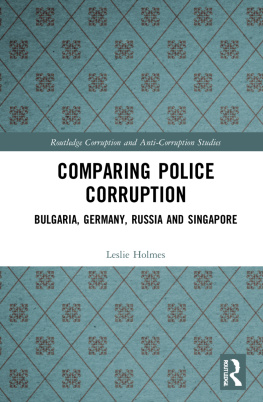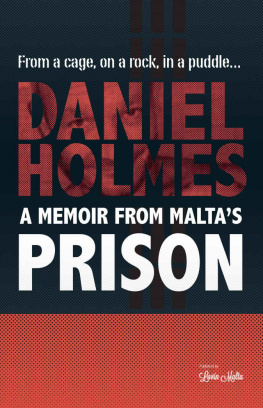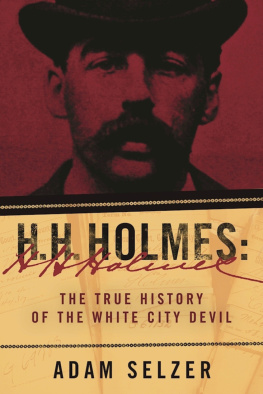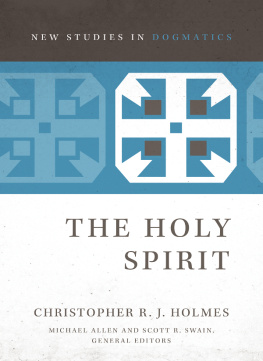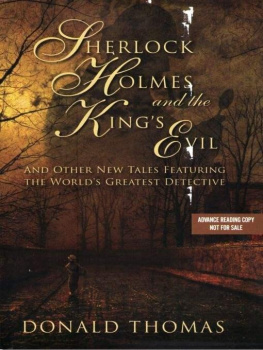PREFACE
The kind reception accorded to a previous book encourages me to believe that another volume dealing with my experiences in the great under-world of London may not prove unacceptable.
For twenty-five years I have practically lived in this under-world, and the knowledge that I have obtained has been gathered from sad, and often wearying, experience. Yet I have seen so much to encourage and inspire me, that now, in my latter days, I am more hopeful of humanity's ultimate good than ever. Hopefulnay, I am certain, for I have felt the pulse of humanity, and I know that it throbs with true sympathy. I have listened to its heart-beats, and I know that they tell in no uncertain manner that the heart of humanity is sound and true.
Most gladly do I take this opportunity of proclaimingand I would that I could proclaim it with a far-reaching voicethat, in spite of all appearances to the contrary, in spite of apparent carelessness, indifference, and selfishness, the rich are not unmindful of the poor; they do not hate the poor, for I knowand no one knows it betterthat with many of the rich the present condition of the very poor is a matter of deep and almost heartbreaking concern.
They will be gladay, with a great gladnessif some practical way of ameliorating our present conditions can be shown.
But I can speak with more authority for the poor, whom I know, love, and serve. The poor have no ill-feeling toward the rich; they harbour no suspicions; no envy, hatred, or malice dwell in their simple minds. Their goodness astonishes me, and it rebukes me.
Ah, when we get at the heart of things, rich and poor are very close together, and this closeness makes me hopeful; for out of it social salvation will come and the day arrive when experiences like unto mine will be impossible, and mine will have passed away as an evil dream.
Sincerely and devoutly I hope that this simple record of some parts of my life and my work may tend to bind rich and poor still closer.
One result of my former book, "Pictures and Problems from London Police Courts," is to be found at Walton-on-the-Nazea Home of Rest for London's poorest toilers, which the readers of that book generously gave me the means of establishing. During the present year five hundred poor women have rested in it, some of them never having previously seen the sea. Such profits as accrue to me from the sale of this book will be devoted to the maintenance and development of this Home.
One word more. I want it to be distinctly understood that I am no longer a Police Court Missionary. I resigned that position four years ago that I might be free to devote my life to London's poorest toilers, the home-workers, to whom frequent references are made in my pages, and for whom I hope great things. But I am not free altogether of my old kind of work, for, as secretary of the Howard Association, one half of my life is still devoted to prisons and prisoners.
THOMAS HOLMES.
12, Bedford Road,
Tottenham, N.
September, 1908.
CHAPTER I MEMORIES AND CONTRASTS
During the summer of 1904 there were in London few men more unsettled in mind and miserable than myself. I had severed my connection with London police-courtsand well I knew it. I was not sure that I had done wisely or well, and was troubled accordingly. I missed more than words can express the miseries that had hitherto been inseparable from the routine of my life. For twenty-one years, day after day at a regular hour, I had turned my steps in one direction, and had gone from home morning by morning with my mind attuned to a certain note. It was not, then, a strange thing to find that mechanical habits had been formed, and that sometimes I found myself on the way to the police-court before I discovered my mistake. Still less was it a marvel to find that my mind refused to accept all at once the fact that I was no longer a Police-Court Missionary. I must in truth confess I felt a bit ashamed that I had given up the work. I felt that I was something of a traitor, who had deserted the poor and the outcast, many of whom had learned to love and trust me.
I am not ashamed to say that I had been somewhat proud of my name and title, for the words "Police-Court Missionary" meant much to me, and I had loved my work and had suffered for it.
It was doubtless in accordance with the fitness of things that I should retire from the work when I did, for I am getting old, and dead officialism might have crept upon me, and whatever power for good I may have might have been atrophied. Of such a fate I always felt afraid; mercifully from such a fate I was prevented or delivered.
Still, I sorrowed till time lightened the sense of loss. By-and-by new interests arose, new duties claimed me, and other phases of life interested me. Four years have now lapsed, a length of time that allows sufficient perspective, and enables me to calmly take stock of the twenty-one years I spent in London police-courts. I do not in this chapter, or in this book, intend to review the whole of those years, but I do hope to make some comparisons of the things of to-day with those of twenty-one years ago.
The comparisons will, I trust, be encouraging, and show that we have progressed in a right direction, and that we are all still progressing. Two days of those years will remain ever with methe day I entered on my work and the day I gave it up.
Of the latter I will not speak; but as the former opened my eyes to wonders of humanity, and humanity being of all wonders the greatest, I have something to say.
The conditions at London police-courts in those days were bad, past conception. No words of mine can adequately describe them, and only for the sake of comparison and encouragement do I attempt briefly to portray some of the most striking features of those days. Even now I feel faint when I recall the "prisoners' waiting-room," with its dirty floor, its greasy walls, and its vile atmosphere.



